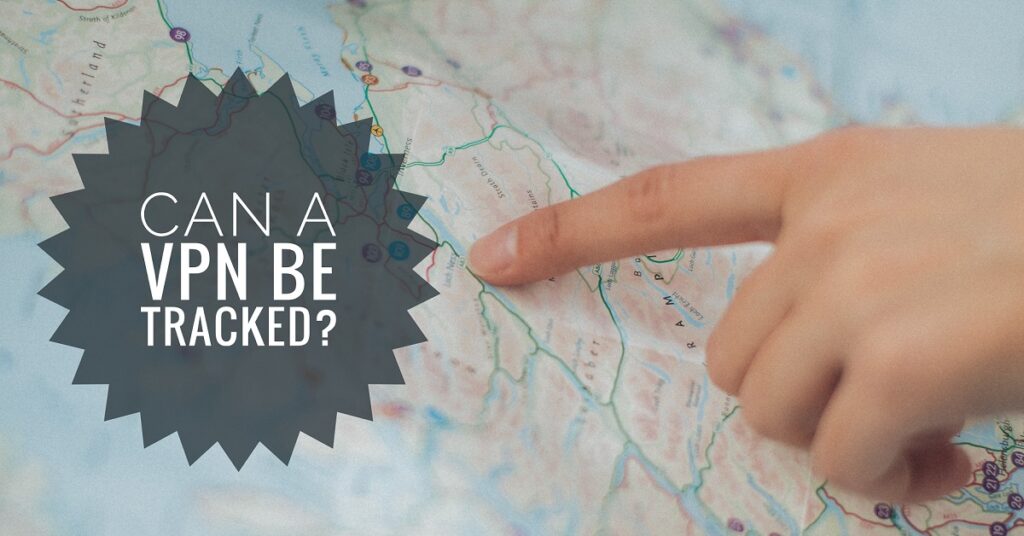One thing about a Virtual Private Network (VPN) that appeals to most is the promise of security. These encrypted connections are billed as a way to safely browse the internet. You can also connect to your company’s network to work from home or on the road.
But does your boss know what kind of websites you are browsing? Will the police be able to see your internet traffic? This article answers these questions and explains how to protect your activity online.
Table of Contents
If I use VPN can I be Tracked?
Can VPN Protect You from Police?
Generally speaking, yes the police can track your VPN activity. This is because they have the authority to compel information from VPN providers. There are many claims that these providers do not store any identifiable information such as logs. However, trusting that they do not keep these logs is not worth the risk of getting caught. Therefore, you should operate under the assumption that a VPN is not secure enough to avoid the authorities.



If I Use a VPN at Work
When you use a VPN to connect to the network at your place of employment, your activity during this time is not private. The connection is encrypted which protects in case it is intercepted by an unauthorized third party.
However, because the communication between your computer and your employer’s server is trusted, the information is visible. One exception would be if you are using a VPN service while at work or connected to your employer’s network.
This is opposed to having a VPN connection between your computer and your employer’s network. Instead, you have a connection with a third party. You are only using your employer’s Internet connection. In this case, your employer would not be able to see your traffic or activity but they would be aware of the fact that you are using a VPN service. This is because of the IP address that you are connecting to.
Can ISP See Your Activity?
Because you are not connecting directly with your ISP but instead are using a VPN to directly access a service provider, the ISP cannot see your activity. However, just as in the case of your employer, your ISP will be able to see that you are connected to a VPN. They will not be able to see the data you transmit or exactly what you are accessing, but if the use of a VPN is prohibited they will be aware of this.
Is VPN Secure?
How Secure Is a VPN?
VPNs much like anything else are vulnerable to hackers. There have been documented cases of VPN services being compromised and more vulnerabilities will eventually be identified in the future. However, it is more secure to use one than not to. So a VPN is safe to use, but it won’t provide 100% protection.
It is one layer of security that should be used in combination with others. A VPN is not the solution of choice if your primary motivation is privacy. Instead, their primary benefit is access to secured networks remotely and bypassing censorship. While security may be somewhat of an advantage, it is not foolproof.
Will a VPN Protect Me From Hackers?
No, VPNs will not protect you from hackers. For the reasons I listed above, there are many benefits to a VPN but protection from hackers is not one. According to the FBI, attacks on users of remote network services have been on the rise since 2016. More recently, it has spiked as more people start working from home.
No system in cybersecurity is 100% safe that’s why we teach the use of layers of protection. A VPN is not an antivirus. Spyware and malware can still pass through a VPN and infect our computer. For this reason and others, a VPN can be hacked.
I like to use the example of a kitchen strainer you would use to filter water from the pasta. One strainer filters out the pasta but the water gets through. if you were to stack multiple strainers together the gaps would close. These gaps are the opportunities hackers have to access a vulnerable system.
How It Works
A virtual private network consists of an encrypted connection between one point and another through the Internet. The pathway this takes is often referred to as a tunnel. One point is your computer and the other point is the server provided by the VPN service.
This type of connection is best explained as mitigating the effects of data interception. Some may consider this to be private internet access. The tunnel restricts the movement of the data between the two trusted parties.
Hide My Location
A VPN does not change your IP address. In order to hide your location or IP, you should be requesting the assistance of a proxy. The good news is VPN service providers generally act as a proxy. But in the case of VPNs, this connection is secured through encryption.
Types of VPN
Remote Access (Work From Home)
This is the type of VPN connection that most people use. With so many people working from home or while traveling this can be a great asset. This allows for a tunnel for you to access your company’s intranet.
This can consist of web pages and shared documents that are otherwise not accessible by all Internet users. When you make this connection, it will seem as if you are using a computer that is physically located at your place of employment.
Site-to-Site (Connect Work Sites)
This is the type of connection that you would be familiar with if you are a network administrator. This is something that links multiple branches or locations of a company together. For example, larger companies with physical locations in different cities use this connection. This allows for a more secure connection to company documents that is not accessible to the public.
Related Terms
Difference Between Proxy and VPN
A VPN is not a proxy. A proxy provides no encryption or really any other direct security. It can be beneficial for hiding your IP address. This way, you will not share your location and be limited by region-based restrictions. A proxy simply acts as a go-between. It blocks the user from directly communicating with web servers and other data sources.
Meanwhile, a VPN creates a secure connection or tunnel between one trusted source. Read more about internet proxies in my other article here.
Difference Between VPN and Firewall
A firewall is more of a defense that inspects traffic from your computer and looks for anything suspicious. VPNs are not designed specifically for security but for communication.
Difference Between VPN and VDI
A Virtual Desktop Infrastructure (VDI) is like a remote desktop but exists on a virtual machine. There are higher costs for hardware because you are connecting to a server and taking control. Versus as VPN where you are simply transferring files from one location to another. This allows you access to many more features. This includes the use of programs without the need to install them locally on your computer.
Difference Between Tor and VPN
Tor is slower than a VPN. The data passes through multiple layers. I believe this makes Tor more secure. Because instead of sending one batch of data with encryption from one point to another, they send data between multiple relays and add encryption over and over again.
I have an article about the Tor Browser that’s worth a read. It covers the safety of using Tor for browsing normal non-Tor specific .com websites.
VPN vs Remote Desktop
VPN is access to a network while a remote desktop provides access to a computer. This is similar to VDI but instead of controlling a virtual machine, the computer you are controlling is a physical computer. This means another computer can even connect to the computer you are using through this method.
A VPN would simply be the transmission of data between these two computers. However, a remote desktop would be complete control over the computer’s files and its programs.
Why They Are Used
Even though VPNs do not provide 100% security, they do work for other purposes. The best part is you do not have to use a desktop or laptop computer. Most of the good VPNs work on iPhone and Android phones.
While there is no reason I can think of why you would need a VPN, using one is your choice. Personally, I only find them necessary while traveling or using someone else’s Wifi. For example, if you are at an airport or coffee shop you should use a VPN. These places are big targets for hackers because of the high volume of traffic. The potential victims are usually passing through. They may not realize when or where their connection was compromised.
You can check out our recommended VPN provider SurfShark here.
Using a VPN at home would be a good option if you are having issues with your ISP limiting your connection as I talk about below.
VPN Benefits
| Unblock Sites |
| Bypass Region-Based Restrictions |
| Override Data-Throttling |
| Provide Some Security |
VPNs are primarily used for the purpose of getting around censorship so you can unblock sites. Some countries such as China have strong censorship laws. These laws prevent access to certain websites such as YouTube and other social media. Countries that do this have varying motives. China has one motive of maintaining its control as a communist country.
Another use is to bypass geolocation restrictions. As with censorship, there are certain features that are not available depending on where you are located.
As I allude to above, some ISPs will limit your connection speed during peak usage times. The idea you can beat data-throttling is one more appeal that a VPN may be able to provide. This is more realistic if you are using a premium provider instead of a free option.
There is some level of security a VPN can provide. The connections use encryption which add one layer of security to your browsing. Also, because this a direct tunnel connection there is an added bonus that it can limit outside interference.
The Effect on Internet Speed
The speed of your VPN will depend on two main factors. The first factor why a VPN makes the internet slow is the location of the VPN server. The second major factor will be the source of the information you are trying to contact.
For example, the location of your VPN server may be in a different country. But you are trying to contact a website that servers host from the United States. This can create a delay in the request.
Being located in the same country as the hosted data does not help the fact that your VPN is slow. Because your traffic is leaving your location to go a great distance for the VPN server just to come back. For this information to reach you it then has to travel in the reverse direction.
Is a VPN Illegal?
A VPN is legal in the U.S. They are also legal in most countries including the United Kingdom, Australia, and Canada. It is how you use these VPNs that can sometimes lead to legal trouble. Using a VPN to hide your identity to commit a crime is still a crime. Bypassing laws or accessing explicit material is the illegal part.
A VPN is illegal in China and a few other countries. Other countries such as India and Pakistan while not as restrictive have certain laws with the intent of maintaining their culture. It is their fear that access to certain information would dilute the message of their culture and religious teachings. I have related information in my article about the legality of Proxies in these countries.
When VPN is Blocked
If your VPN is not working, it could be blocked. Your work, school, or home ISP may have banned your connection. Although the data you transmit and receive is encrypted this simply means that your traffic cannot be viewed.
However, the IP address of the VPN server you connect to can be discovered. The source of these IP addresses as being associated with VPN’s is not secret. So, if your ISP or a censoring government sees that you are connecting 2A IP address that belongs to a VPN. Then they can block your access to that address effectively preventing you from using a VPN.
The Best VPN
Surf Shark VPN is the best VPN in my humble opinion. I trust Surf Shark mainly because of the credentials of the company behind this product. I believe they are trustworthy. And their long history in the cybersecurity industry Is a big endorsement.
They have many options to implement a VPN solution. You can use it on your laptop, desktop, iPhone, or android. There are some indications it could be a good choice as a gaming VPN. Unfortunately, I cannot independently verify this as my videogame time is behind me.
With that said, the product you choose is your decision. Find a product that works for you and know that we have your interests in mind.
You can check out our recommended VPN provider SurfShark here.
I will also mention NordVPN will not be the cheapest option you will find. Its price is comparable to the high level of service and features they provide. Also, in 2018 they had a rough year for vulnerabilities. If you’ve read my article about how hackers find vulnerabilities, you would know no company is immune.
| List of VPN Providers (Top 3) |
|---|
| NordVPN |
| ExpressVPN |
| ProtonVPN |
All three of these provide a VPN that works with Netflix and Hulu. Which one you should use is ultimately up to you. It’s hard to go wrong when choosing between the top three options. It comes down to a matter of personal preference.
The only thing I warn against is using software from a company or website you have never heard of before. A quick Google search should give you a good idea if they are well-known.
Free Option
This is the best free VPN for iPhone or Android. It is also a Chrome extension so you can use it on your computer. Many people use this for Netflix and it comes highly recommended.
I recommend you only use Wachee for streaming and not for any sensitive transactions such as banking. Also, make sure none of your other accounts share the same username and passwords as your Netflix or other streaming profiles. Here I explain password security in greater detail in our other article about the topic.



Conclusion
A VPN connection can be tracked by the police or your employer. The police would need a search warrant to obtain logs from your VPN provider. Your employer can view your traffic at any time since you are connecting to their network.
Although it can be a great tool for bypassing censorship online. Most people however use this kind of secured connection to reach their work’s network.
While using a VPN is not your saving grace as far as safety and security on the internet, I still recommend one. They are one of the multiple layers of security you should surround yourself with.
You can check out our recommended VPN provider SurfShark here.
Read our article about VPNs changing your IP address for more helpful information about online privacy.

